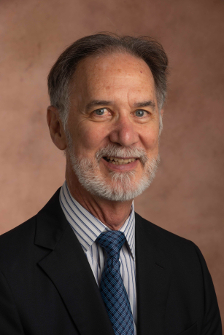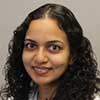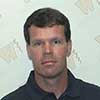Thomas L. Rothstein obtained his MD and PhD degrees through the Medical Scientist Training Program at Duke University. He completed advanced clinical training in Internal Medicine and Hematology/Oncology at The George Washington University Hospital in Washington, DC and Beth Israel Hospital/Harvard Medical School in Boston, MA. He undertook advanced research training at the National Cancer Institute in Bethesda, MD and the Massachusetts Institute of Technology in Cambridge, MA.

Director, Center for Immunobiology
He was appointed Assistant Professor of Medicine and Assistant Professor of Microbiology and Immunology at Boston University School of Medicine/Boston Medical Center (Boston, MA) and rose to the position of full Professor, filling roles as Associate Chief for Research in the Section of Hematology/Oncology, as Director of the Immunobiology Unit, and as Director of the T32 Hematology Training Grant. He was subsequently recruited to the Feinstein Institute for Medical Research (Manhasset, NY) as Investigator, Professor in the Elmezzi Graduate School of Molecular Medicine, and Head of the Center for Oncology and Cell Biology.
Upon his arrival here in 2016, Dr. Rothstein was named Assistant Dean for Investigative Medicine, Director of the Center for Immunobiology, and Professor of Biomedical Sciences. In 2020, he was appointed Professor and Founding Chair of the Department of Investigative Medicine, along with his position as Director of the Center for Immunobiology.
Throughout his research career, Dr. Rothstein has been continuously funded by the NIH and has also received grants from the Lupus Research Institute and the American Cancer Society. He has mentored over 50 graduate students and postdoctoral fellows in his laboratory. He has served on multiple review panels for NIH, the Arthritis Foundation, and the Lupus Research Institute.
He is an elected member of the American Society for Clinical Investigation, the Association of American Physicians, and the Kunkel Society. Among his recent editorial duties he was the Founding Editor-in-Chief of Frontiers in B Cell Biology (2010-2020) and is a member of the editorial board for Cellular Immunology. He serves on the scientific advisory board for the Immunotherapy conferences sponsored by the Center for Molecular Immunology in Havana, Cuba, and was co-organizer for the Merinoff Symposium 2014: B-1 Cell Development and Function.
In the Center for Immunobiology, we welcome postdoctoral fellows and research assistants/associates to be a part of our team and the exciting discoveries that are taking place in each of our research labs. More information about these opportunities can be found by contacting the Department of Investigative Medicine at 269.337.4351 or tom.rothstein@wmed.edu, or check out the medical school’s latest job opportunities.
Research Focus
Our laboratory group is focused on B lymphocytes (B cells) and the antibodies they produce. Within the universe of B cells, we maintain an intense interest in the subpopulation termed B1 cells. B1 cells constitutively generate antibodies, termed natural antibodies, that are especially effective at counteracting infectious pathogens during the time required for development of adaptive immunity. These B1 cells are present in mice and we identified them in humans by determining their surface phenotypic characteristics.
More recently, B1 cell-derived natural antibodies have been implicated in protection against cardiovascular disease and cancer. We showed that B1 cell numbers and B1 cell function in terms of the level of natural antibodies they produce decline with age. This led us to propose that B1 cell activity sets a rheostat that influences the level of susceptibility or risk to a number of diseases of aging. Further, we speculate that B1 cell-derived antibodies may be useful as therapeutic agents. We continue to explore the origin and development of human B1 cells, age-related changes in B1 cells and the natural antibodies they produce, and the role, persistence and activity of B1 cells and B1 cell antibodies directed against specific disease-associated antigens, including phosphorylcholine (pneumococcal infection), oxidized apoB100 (cardiovascular disease), NGcGM3 (lung cancer), and amyloid/tau (Alzheimer's Disease). Many of these studies involve amplifying immunoglobulin genes from single sorted cells for sequence analysis and constructing those antibodies for functional evaluation. Additional work focuses on the potential role of B1 cells in promoting autoimmune diseases.
Our laboratory group further focuses on 3 additional projects.
We maintain a longstanding interest in intracellular signaling events that initiate B cell activation responses to antigen. We are particularly focused on the interplay between IL-4R signals and the signaling cascade produced by surface immunoglobulin antigen receptor (sIg) engagement. We found that IL-4 exposure before antigen receptor triggering intensifies the latter through operation of an alternate, signalosome-independent pathway, which represents a novel form of receptor crosstalk. We suggest that this IL-4-induced alternate signaling pathway plays a key role in the malignancy of chronic lymphocytic leukemia whose cells appear indolent in the periphery but expand during passage through tissue sites in which they are exposed to IL-4 and antigen. We are working on understanding the molecular mechanism that underlies crosstalk between IL-4R and sIg and how increased, alternate pathway signaling is programmed.
We also maintain a longstanding interest in the anti-apoptotic gene we cloned from inducibly Fas-resistant B cells, which we named FAIM, for Fas Apoptosis Inhibitory Molecule. FAIM has both short and (slightly) longer forms, expression of the latter of which is restricted to the brain. FAIM is highly evolutionarily conserved and yet animals in which the gene has been knocked out are essentially normal, with only minor variation in B cells and antibodies. This led us to speculate that FAIM is involved in counteracting stress more than counteracting Fas-mediated apoptosis. Stressed cells accumulate protein aggregates and we found that FAIM opposes protein aggregation and can disassemble aggregates already formed. Inasmuch as protein aggregates composed of amyloid and tau are pathogenically linked to Alzheimer’s Disease, and other protein aggregates are linked to other neurodegenerative conditions, we are exploring the role that FAIM deficiency plays in these dyscrasias that also include Parkinson’s Disease, Huntington’s Disease, and Amyotrophic Lateral Sclerosis (ALS).
We further study extracellular vesicles produced by B cells. Many cell types generate extracellular vesicles but their production by B cells has received little attention. We showed that B cells produce extracellular vesicles of two different sizes that contain antibody. We further showed that B cell extracellular vesicles can enter target cells, something that soluble antibody cannot do. Thus, we speculate that B cell extracellular vesicles that contain antibody constitute a novel system of antibody distribution within the body, which may be important in counteracting infectious and other diseases but may be pathogenic in autoimmune dyscrasias in which autoreactive antibodies are produced. We continue to study the mechanisms by which B cell extracellular vesicles are produced, the composition of B cell extracellular vesicles, and the activities of antibody contained within B cell extracellular vesicles.

Lab Personnel
 |
 |
 |
 |
 |
Recent Publications
Our laboratory group is committed to pursuing inquiry, disseminating knowledge, and fostering critical thinking that encourages lifelong learning. Take a look at a comprehensive listing of Dr. Rothstein's most recent publications.


